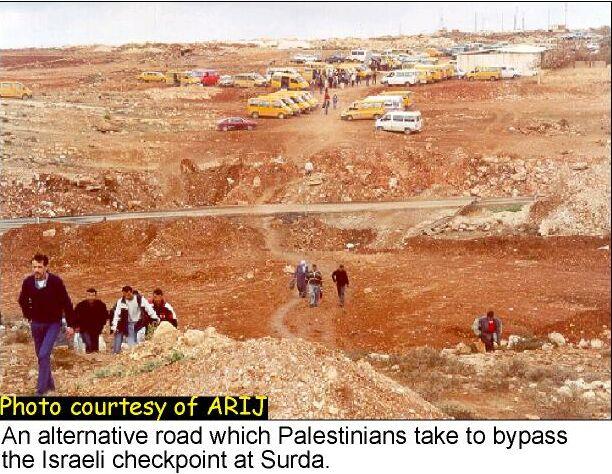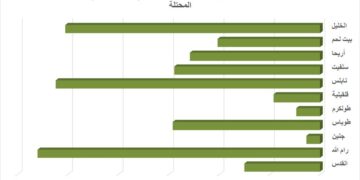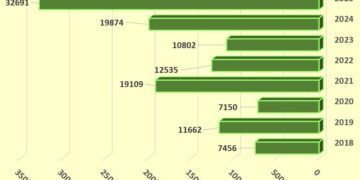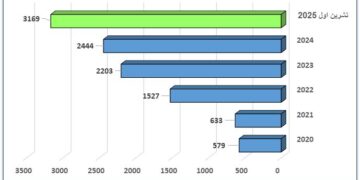In these days, it may be useful to recollect the joke about the rabbi and his advice to the bored poor man to bring a cow, a chicken etc.. to solve his boredom and the relief that the poor man felt after getting rid of these added burdens. Ironically, this joke became in fact the policy of the Israeli government that Re-occupies and then 'Re-withdraws' from Palestinian territories. Ramallah is a clear example.
Since the beginning of Al-Aqsa Intifada in September 2000, Ramallah district has been subjected to a very tight siege. Harsh measures were imposed in order to restrict the movement of the people and goods. Six checkpoints were erected all around the main roads leading to Ramallah. Residents living in nearby villages who cannot pass the checkpoints are forced to bypass these checkpoints by going through alternative roads, see photo 1 & & photo 2.
On the 18th of October 2001, Ramallah was reoccupied. Israeli troops and tanks invaded Area A, which lies under full Palestinian control according to Oslo agreement. The re-occupation of parts of Ramallah and specifically the Palestinian Ministries and the main buildings shows in a clear way the policy of the collective punishment whether subjected to the residents or to the Palestinian Authority itself. See satellite Image
The Palestinian Central Bureau of Statistics, the Ministry of Local Governments and the Palestinian cellular Telecommunication Company (JAWWAL), as well as Al-Irsal and other buildings were among those main buildings controlled by Israeli troops and snipers. see photo 3, photo 4 & photo 5.
People commuting from Ramallah to Bir Zeit now have to take an even longer distance than they used to before the re-occupation. They first take public transport to a place near the Palestinian Central Bureau of Statistics building and then walk all the way to the outskirts of northern Ramallah; that's a walking distance of 2000 meters. The route is uphill and people have to walk on mud and soil, so for those carrying things with them, it is a real torment. Before the re-occupation the situation was less dire and people walked 300 meters at Surda checkpoint; see map . They used to pay 3.5 shekels for the trip, now they pay 5.5 and walk a lot more
On top of all this, the Israeli army chases the cars that try to carry some passengers through this long route. Often, the soldiers stop the people walking and interrogate them. After five o'clock in the afternoon, they impose a curfew so anyone seen walking in the area is stopped, interrogated and harassed. Thus, again, people end up playing a game of cat-and-mouse as the Israeli armored vehicles go one way and the people go the other in order to avoid them. Two days ago, the Israelis even used tear gas and rubber coated bullets to stop those who dared to cross.
As a consequence of the tight closure, Bir Zeit University has not been able to open for the last ten days. The university's administration fears that the whole semester will have to be dropped as too many teaching hours have been lost. It is important to note here that the importance of Bir Zeit is not only in the presence of the university, but in that it is the point where passengers commuting to 35 villages north of Ramallah converge. Anything that happens to the Ramallah-Bir Zeit route affects all those villages and the traffic between them. What Israel does in its closure policy is to strangulate scores of villages from the bottleneck that serves them, see photo 6 .
On October 7th, Israel pulled out its heavy equipment and tanks from area A but the fact remains that very little has changed: The blockade of the city remains in spite of the pullout. Also, Israeli armored vehicles still stand by the checkpoint at Surda and in the military camp of Beit El settlement only few hundred meters away from places invaded during re-occupation of Ramallah twenty days ago. The suffering changes but the occupation remains.
Prepared by:
The Applied Research Institute – Jerusalem





















